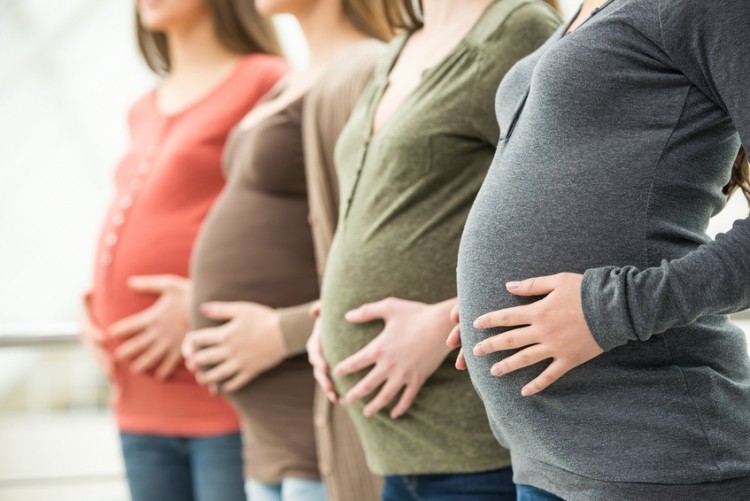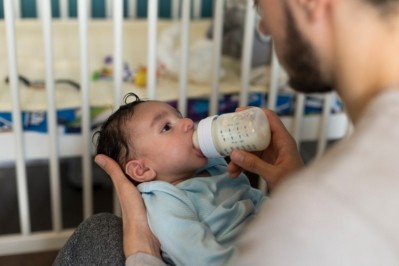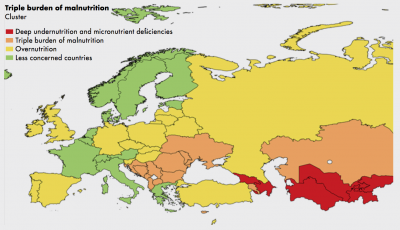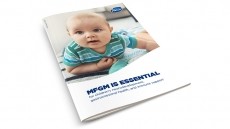You are what your grandparents ate
Inter-generational malnutrition: Grandparents diet and health also impact baby

The study, published in The FASEB Journal, says that parents’ prenatal environments have an impact on their future children’s weight. Mothers who were malnourished in the womb give birth to smaller babies the experiment, held in rural Gambia, demonstrated.
Likewise, a father’s malnourishment leads to children being smaller at the age of two years old.
Due to the experiment’s location, socioeconomic factors, which can influence babies’ growth, were ruled out.
“Nutrition interventions such as dietary supplementation programs in poor populations are frequently undermined by an apparent absence of immediate impact,” said Andrew Prentice, professor within the MRC Unit The Gambia and MRC International Nutrition Group.
“This study shows that it may take several generations to eliminate growth failure and stunting because of these intergenerational influences”.
Experiment of nature
Gambia was used as the study’s location due to its single annual rainy season, which results in a harvest and a following hungry season.
This allowed the researchers to conduct an experiment of nature.
“Substantial seasonal nutritional fluctuations are experienced naturally in some rural farming communities in low- and middle-income countries, resulting in maternal under-nutrition in the hungry season,” explained the team from the Medical Research Council (MRC) Unit The Gambia and MRC International Nutritional Group at the London School of Hygiene and Tropical Medicine.
The hungry season in Gambia leads to women loosing 3-6 kg of weight, and pregnancy weight gain is 400-500 g/month less than pregnancy weight gain during the harvest season.
Intergenerational influence
The research team said that prior to the study there had been a lack of human data on intergenerational transmission of environmentally induced phenotypes, despite there being strong animal evidence that the impact of nutrition in early-life can extend over multiple generations.
This study found that the mean birth weight was 2.967 kg (6.541 lbs) and 10% of babies born were considered to have a low birth weight (< 2.5 kg).
Furthermore, maternal season of birth was found to be associated with offspring birth weight, as there was a difference of 36 g between the harvest and hungry seasons.
Paternal season of birth and offspring birth weight was not found to be significantly associated.
There was also strong evidence that offspring birth length was shorter for mothers born in the hungry season.
“Our data suggest that periods of nutritional restriction during both parents’ fetal life can have intergenerational consequences, affecting their offspring’s fetal and post-natal growth,” said the team.
The study
A Gambian cohort of 2097 children born between 1972 and 2011 were measured for the study from three villages in the West Kiang District in Gambia; Keneba, Kantong Kunda, and Manduar.
The researchers, led by Prentice, used 31 multiple regressions to test whether the parent’s season of birth predicted their children’s birth weight, length, and/or height by the time they were two years old.
Birth weights and lengths were recorded within 72 hours of birth by trained staff, regardless of where the birth took place.
Potential variables measured were maternal age, parity, parental height, gestational age at birth, offspring sex, offspring season of birth and season of offspring anthropometric measurements at 24 months of age.
The researchers say further research is needed to investigate the “mechanisms through which the parental early life environment alters the developmental trajectory of their children”.
Source: The FASEB Journal
“Influence of intergenerational in utero parental energy and nutrient restriction on offspring growth in rural Gambia”
Published online before print, 4 August 2017, doi: 10.1096/fj.201700017R
Authors: Kamilla G. Eriksen, Elizabeth J. Radford, Matt J. Silver, Anthony J. C. Fulford, Rita Wegmüller, and Andrew M. Prentice.















